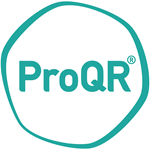ProQR Receives Rare Pediatric Disease Designation from FDA for Sepofarsen for the Treatment of LCA10
LEIDEN,?Netherlands?&?CAMBRIDGE, Mass.,?Oct. 15, 2019?(GLOBE NEWSWIRE) --?ProQR Therapeutics N.V.?(Nasdaq:PRQR), a company dedicated to changing lives through the creation of transformative RNA medicines for severe genetic rare diseases, today announced that it received Rare Pediatric Disease (RPD) designation from the?U.S. Food and Drug Administration?(FDA) for sepofarsen for the treatment of Leber?s congenital amaurosis 10 (LCA10), the most common cause of blindness due to genetic disease in children.
Sepofarsen (QR-110) is a first-in-class investigational RNA-based oligonucleotide designed to address the underlying cause of LCA10 due to the p.Cys998X mutation (also known as the c.2991+1655A>G mutation) in the?CEP290?gene.
The RPD designation provides priority review by the?FDA?to encourage treatments for rare pediatric diseases. Under the RPD program, a sponsor who receives an approval for a drug or biologic for a "rare pediatric disease" may qualify for a voucher that can be redeemed to receive a priority review by the?FDA?of a subsequent marketing application for a different product.
?We are pleased to have received rare pediatric designation from the U.S.?FDA?for our sepofarsen program for patients with LCA10, which is the most common cause of blindness due to genetic disease in children,? said?Daniel de Boer, chief executive officer of ProQR. ?This designation for sepofarsen underscores the significant unmet medical need for patients with this genetic disease causing blindness. Our goal is to advance a pipeline of programs that can treat inherited retinal diseases like LCA10 to bring medicines to patients as soon as possible.?
About sepofarsen
Sepofarsen (QR-110) is a first-in-class investigational RNA-based oligonucleotide designed to address the underlying cause of Leber?s congenital amaurosis 10 due to the p.Cys998X mutation (also known as the c.2991+1655A>G mutation) in the?CEP290?gene. The p.Cys998X mutation is a substitution of one nucleotide in the pre-mRNA that leads to aberrant splicing of the mRNA and non-functional CEP290 protein.
Sepofarsen is designed to bind to the mutated location in the pre-mRNA and enable normal splicing, resulting in restoration of normal (wild type)?CEP290?mRNA and subsequent production of functional CEP290 protein.
Sepofarsen is intended to be administered through intravitreal injections in the eye and has been granted orphan drug designation in?the United States?and the?European Union?and received fast-track designation from the?FDA?as well as access to the PRIME scheme by the EMA.
About Leber?s congenital amaurosis 10
Leber?s congenital amaurosis (LCA) is the most common cause of blindness due to genetic disease in children. It consists of a group of diseases of which LCA10 is the most frequent and one of the most severe forms. LCA10 is caused by mutations in the CEP290 gene, of which the p.Cys998X mutation has the highest prevalence. LCA10 leads to early loss of vision causing most people to lose their sight in the first few years of life. To date, there are no treatments approved or other products in clinical development that treat the underlying cause of the disease. Approximately 2,000 people in the Western world have LCA10 because of this mutation.
About ProQR
ProQR Therapeutics?is dedicated to changing lives through the creation of transformative RNA medicines for the treatment of severe genetic rare diseases such as Leber?s congenital amaurosis 10, Usher syndrome type 2 and autosomal dominant retinitis pigmentosa. Based on our unique proprietary RNA repair platform technologies we are growing our pipeline with patients and loved ones in mind.
*Since 2012*
FORWARD-LOOKING STATEMENTS
This press release contains forward-looking statements. All statements other than statements of historical fact are forward-looking statements, which are often indicated by terms such as "anticipate," "believe," "could," "estimate," "expect," "goal," "intend," "look forward to", "may," "plan," "potential," "predict," "project," "should," "will," "would" and similar expressions. Such statements include those relating to sepofarsen and the clinical development and therapeutic potential thereof, and the receipt of rare pediatric disease designation for sepofarsen for LCA 10.? Forward-looking statements are based on management's beliefs and assumptions and on information available to management only as of the date of this press release. Our actual results could differ materially from those anticipated in these forward-looking statements for many reasons, including, without limitation, the risks, uncertainties and other factors in our filings made with the?Securities and Exchange Commission, including certain sections of our annual report filed on Form 20-F. Given these risks, uncertainties and other factors, you should not place undue reliance on these forward-looking statements, and we assume no obligation to update these forward-looking statements, even if new information becomes available in the future, except as required by law.
ProQR Therapeutics N.V.:
Investor Contact
Hans Vitzthum
LifeSci Advisors
T: +1 617-535-7743
hans@lifesciadvisors.com
Media Contact
Sara Zelkovic
LifeSci Public Relations
T: +1 646 876 4933
sara@lifescipublicrelations.com
 Source: ProQR Therapeutics N.V.
Source: ProQR Therapeutics N.V.
 Source: ProQR Therapeutics N.V.
Source: ProQR Therapeutics N.V.






